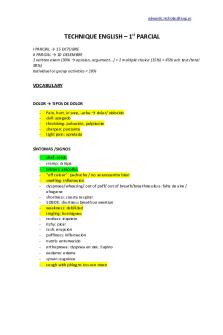BBS 1st year English Note PDF

| Title | BBS 1st year English Note |
|---|---|
| Author | Destiny Neø |
| Course | Bachelors of Business Administration |
| Institution | Tribhuvan Vishwavidalaya |
| Pages | 6 |
| File Size | 620.9 KB |
| File Type | |
| Total Downloads | 84 |
| Total Views | 170 |
Summary
Download BBS 1st year English Note PDF
Description
BBS 1st Year Business English Notes | www.edunepal.info
UNIT ELEVEN: CRITICAL AND CREATIVE THINKING 1
The Stub Book
Pedro Antonio de Alarcon, Spain (1833-1891)
The story "The Stub Book" is written by Spanish writer, Pedro Antonio de Alarcon. The story is about using the creativity to solve the problems in life. "To claim anything we must have the sufficient convincing proof not to be justified as wrong" is the central idea of the story. Uncle Buscabeatas had grown up forty big pumpkins, who was a gardener at Rota. He used to love the pumpkins as a father loves the daughter. He was planning to sell the pumpkins tomorrow morning in Cadiz. When he went to garden next morning, he found all his pumpkins stolen. He didn't lose the hope and
was taken to the prison. Hence, the story is about importance of using logic and creativity to solve the problem in life.
1
BBS 1st Year Business English Notes | www.edunepal.info
2
Mr. Know-All
W. Somerset Maugham, England (1874-1965)
The story, "Mr. Know-All" is written by an English writer, W. Somerset Maugham. In the story, the writer shows two important issues: racial feeling i.e. the writer's reluctance to share the cabin with Mr. Kelada, a Negro and next is the nature of women's in the absence of their husbands' i.e. Mr. Kelada said, "If I have a pretty little wife, I shouldn’t let her spent a year in New York while I stayed at Kobe." The writer was going to Yokohama, Japan from San Francisco, USA. It was a journey of fourteen days. The writer had to share the cabin with Mr. Kelada but he didn't want. Mr. Kelada was frank and became familiar with everyone in the ship. He put his logic on different pictures and politics. Though the writer didn't like him, Mr. Kelada served the drink. Because of his logic on different issues in a
eighteen dollars and was a duplicate. Mr. Kelada observed it minutely and found that it wasn't a duplicate. Mr. Ramsay was deceived by his wife. While discussing about the chain, Mr. Kelada found Mrs. Ramsay restless, nervous and scared. Then, Mr. Kelada knowingly lost the bet and paid hundred dollars to Mr. Ramsay because he didn't want to destroy the conjugal life of Mr. and Mrs. Ramsay. Next morning Mr. Kelada found an envelope where hundred dollars was kept. Mr. Ramsay was cheated by Mrs. Ramsay that can clearly be experienced as Mr. Kelada said, "If I have a pretty little wife, I shouldn’t let her spent a year in New York while I stayed at Kobe."
Hence, the story raises the issues of racial feeling and the nature of the women. The title of the story is justified in the sense that Mr. Kelada who is
2
BBS 1st Year Business English Notes | www.edunepal.info
known as Mr. Know-All not only knows about the issue of the world around him but also the psychology of Mrs. Ramsay. Four levels of the story Mr. Know-All: 1. Literal Comprehension The story "Mr. Know-All" is written by an English writer, W. Somerset Maugham. The writer was going to Yokohama, Japan from Francisco, USA. It was a journey of fourteen days. The writer had to share the cabin with Mr. Kelada but he didn't want. Mr. Kelada was frank and became familiar with everyone in the ship. He put his logic on different pictures and politics. Though the writer didn't like him, Mr. Kelada served the drink. Because of his logic on different issues in a pragmatic and logical way, his nickname was kept 'Mr. Know-All'. One day Mr. Kelada was sharing table with Mr. and Mrs. Ramsay who were returning back to Kobe from New York. Mrs. Ramsay was pretty woman with pleasant manner. She
about the chain, Mr. Kelada found Mrs. Ramsay restless, nervous and scared. Then, Mr. Kelada knowingly lost the bet and paid hundred dollars to Mr. Ramsay because he didn't want to destroy the conjugal life of Mr. and Mrs. Ramsay. Next morning Mr. Kelada found an envelope where hundred dollars was kept. Mr. Ramsay was cheated by Mrs. Ramsay that can clearly be experienced as Mr. Kelada said, "If I have a pretty little wife, I shouldn’t let her spent a year in New York while I stayed at Kobe."
2. Interpretation In the story, the writer shows two important issues: racial feeling i.e. the writer's reluctance to share the cabin with Mr. Kelada, a Negro and next is the nature of the women's in the absence of their husbands' i.e. Mr. Kelada said, "If I have a pretty little wife, I shouldn’t let her spent a year in New York while I stayed at Kobe."
3
BBS 1st Year Business English Notes | www.edunepal.info
3. Critical Thinking The story raises the issues of racial feeling and the nature of the women. But some of the ideas in the story are not convincing. In the story, Mr. Kelada knows not only the issue of world around him but also the psychology of Mrs. Ramsay, while Mr. Ramsay is unknown about his own wife's psychology. Can a person in a first meet understand the psychology of another person? Etc.
4. Assimilation After reading this story, I really understood the importance of keeping knowledge about each and every little thing we go by on our day to day life. It not only makes us updated but helps in the actions or steps we take in process of our problem solution or leading our steps to success.
4
BBS 1st Year Business English Notes | www.edunepal.info
3
Keep Errors at Bay
Bertrad Russell, England (1872-1970)
The essay "Keeping Errors at Bay" is written by an English writer, Bertrad Russell. In the essay, the writer has given various ideas to keep the errors at bay in our life. According to the writer, the following are the ways to avoid errors in our life: i.
ii. iii.
The writer says that we don't know anything easily. We should go in depth to know exactly and we can reach in conclusion. To understand the thing exactly, it is necessary to have close observation and great attention. If we become unable to pay attention and close observation, we have to compare our ideas, logics and reasons with our opponents. To avoid our dogmatism, we need to be conscious on the opinions held in social circles different from your own. We should travel different places and
superstitious. To overcome from the fear is the beginning of the wisdom.
5
BBS 1st Year Business English Notes | www.edunepal.info
4
What Is Intelligence, Anyway? Isaac Asimov, USA (1920-1992)
The essay "What Is Intelligence, Anyway?" is written by an American writer, Isaac Asimov. In the essay, the writer is trying to broaden the concept of intelligence going beyond the traditional definition of it. The traditional definition intelligence is 'the ability which can secure the highest marks in an aptitude or IQ test'. The writer, Asimov, used to be boosted on his intelligence because he was able to secure 160 against 100 of his competitors in an aptitude test that was held among the soldiers. In many other aptitude tests, he was able to secure the top score, so that he used to show a kind of proud on his ability. The writer had a hardware mechanic who had the habit of making pranks, who once asked the writer a question, "How would a blind man ask the scissors from the shop?" In
emotional intelligence of human beings.
6...
Similar Free PDFs

BBS 1st year English Note
- 6 Pages

Burglary 1st year
- 7 Pages

Sociology - 1st year notes
- 139 Pages

B.Com 1st Year Syllabus
- 49 Pages

English 1st parcial
- 10 Pages

DAE Mechanical Technology (1st year)
- 55 Pages

MBA-Managerial Economics-1st Year
- 193 Pages

Book in Ethics (1st Year)
- 45 Pages
Popular Institutions
- Tinajero National High School - Annex
- Politeknik Caltex Riau
- Yokohama City University
- SGT University
- University of Al-Qadisiyah
- Divine Word College of Vigan
- Techniek College Rotterdam
- Universidade de Santiago
- Universiti Teknologi MARA Cawangan Johor Kampus Pasir Gudang
- Poltekkes Kemenkes Yogyakarta
- Baguio City National High School
- Colegio san marcos
- preparatoria uno
- Centro de Bachillerato Tecnológico Industrial y de Servicios No. 107
- Dalian Maritime University
- Quang Trung Secondary School
- Colegio Tecnológico en Informática
- Corporación Regional de Educación Superior
- Grupo CEDVA
- Dar Al Uloom University
- Centro de Estudios Preuniversitarios de la Universidad Nacional de Ingeniería
- 上智大学
- Aakash International School, Nuna Majara
- San Felipe Neri Catholic School
- Kang Chiao International School - New Taipei City
- Misamis Occidental National High School
- Institución Educativa Escuela Normal Juan Ladrilleros
- Kolehiyo ng Pantukan
- Batanes State College
- Instituto Continental
- Sekolah Menengah Kejuruan Kesehatan Kaltara (Tarakan)
- Colegio de La Inmaculada Concepcion - Cebu







